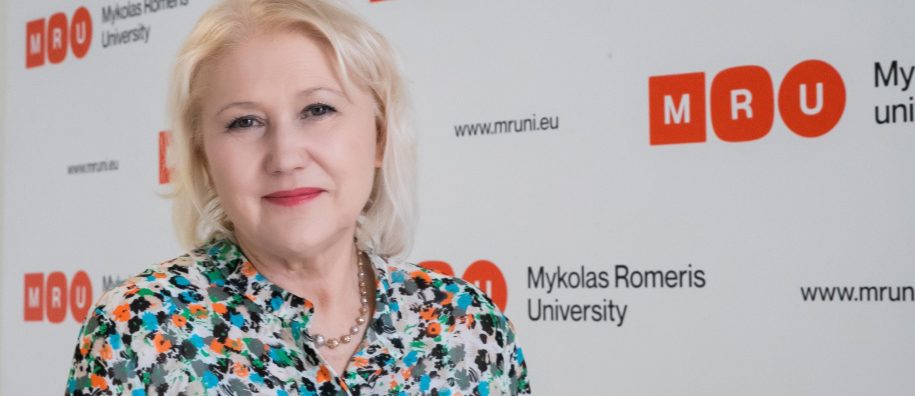
On 2 August, the Congress of the World Association for Medical Law (WAML) will commence at Mykolas Romeris University (MRU) in Vilnius, where lawyers, scholars, attorneys, and medical practitioners from the continents of Europe, the Americas, Asia, Australia, and Africa will discuss the most pressing issues in medical law.
Scientific knowledge of this field of medical law is essential for addressing the challenges dictated by the Constitution to the healthcare system and ensuring patient rights, which become especially crucial during significant disruptions in the healthcare sector caused by the COVID-19 pandemic. These issues, as well as the role of artificial intelligence in medicine, will be extensively analysed at the Congress.
MRU Professor Toma Birmontiene speaks about the importance of the Congress for Lithuania, its people, and Mykolas Romeris University.
Professor, your professional experience is incredibly diverse – you are a professor at MRU, have completed a term as a judge of the Constitutional Court, served as an advisor to President Valdas Adamkus on legal matters, and have worked in the field of health law, including drafting health law legislation. Today, we are speaking with you as a member of the Board of the World Association for Medical Law (WAML) and the organizer of this year's World Medical Association Congress in Vilnius.
What is the significance of the Congress for Lithuania, its society, and the largest social sciences university in Lithuania – MRU and MRU Law School? Could you also mention the raised scientific directions, topics that correlate with the studies conducted at MRU?
The World Association for Medical Law, in collaboration with Mykolas Romeris University, is organizing a congress in Vilnius this year. WAML is a prestigious association of legal and medical professionals with a mission to promote the understanding of medical law (health law) as an integrated field of law and medicine. The congress aims to create opportunities for scholars and practitioners from various countries to meet and discuss current issues in this field, share experiences, and foster initiatives for new projects.
During the Vilnius congress, participants will present papers that will be considered as contributions to the discussions, initiating innovative discussions in the realm of medical law.
Scientific understanding in the field of medical law is essential for addressing the challenges imposed by the Constitution on the healthcare system and ensuring patient rights, which become particularly crucial during significant disruptions in the healthcare sector caused by the COVID-19 pandemic. These issues, along with the role of artificial intelligence in medicine, will be thoroughly analyzed during the congress.
It is expected that this year's World Association for Medical Law congress in Vilnius will provide a unique opportunity not only to enrich knowledge but also to expand the perspectives of scientific research in this field in Lithuania.
Mykolas Romeris University (MRU) integrates health law issues into various social science study programs because it is a highly significant aspect of all our lives. Health law topics are relevant to many fields of study and scientific research that are developed within the Law School's science and study programs at MRU, whether it be Constitutional, Civil, Criminal, International Law, or other areas related to the protection of human rights. This integration is also seen in other law study programs, such as Law and International Relations.
One of the primary law study programs that stands out in this regard is the Health Law program, which aims to delve into and analyze the legal aspects closely related to medical science achievements and practices. The development of the health law field at MRU is also influenced by the university becoming a partner of the 27th World Congress organized by the World Association for Medical Law.